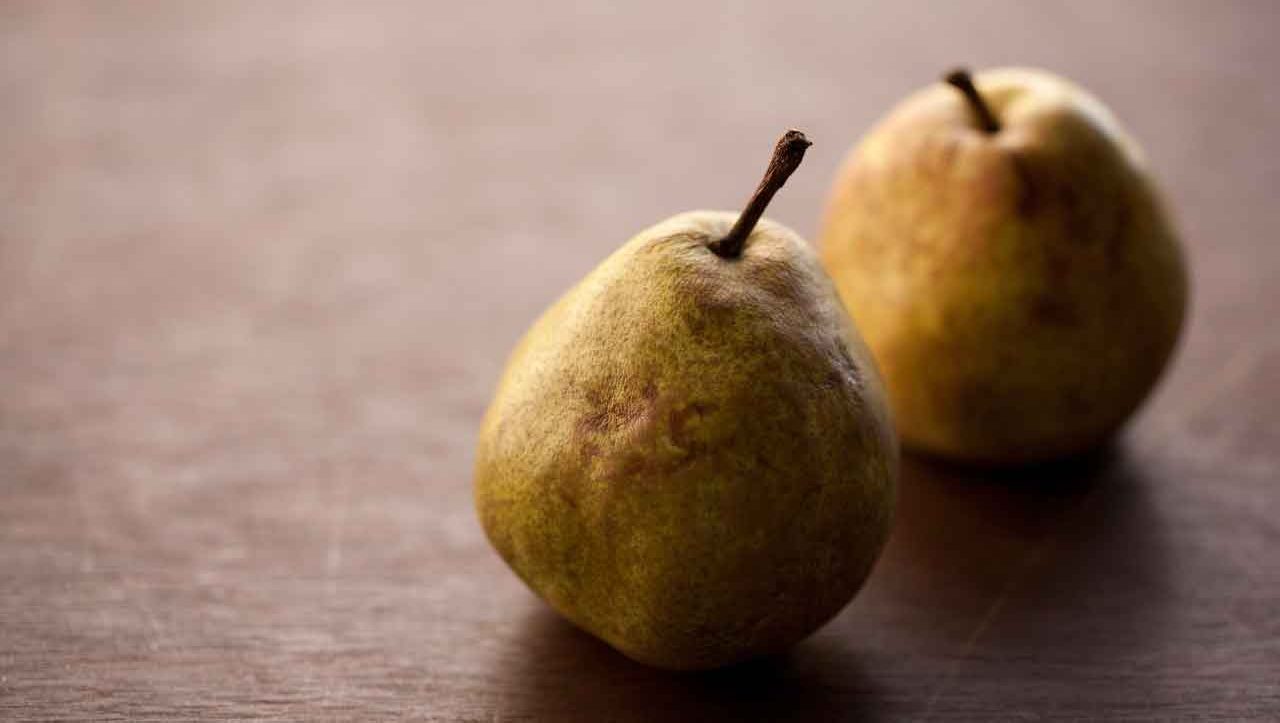A Pear a Day Keeps Obesity Away

Eating pears can help keep you slim and may protect from diabetes and heart woes, too.
Everyone has heard “An apple a day keeps the doctor away.” And apples do, in fact, have many health benefits, including lowering the risk of certain cancers and heart disease.
But it may be time for this new adage about another healthy fruit: “A pear a day keeps the bigger size pants away.”
A recent Louisiana State University study found that adults who regularly ate pears had a lower body weight than their pear-abstaining counterparts. In fact, pear consumers were 35 percent less likely to be obese than people who didn’t eat pears — even when both groups consumed the same amount of calories.
"We believe fiber intake may have driven the lower body weights that were seen in this study because there was no difference in energy intake or level of physical activity found between the fresh pear consumers and non-consumers," said Carol O'Neil, PhD, Louisiana State University College of Agriculture professor of dietetics, who headed the research.
YOU MIGHT ALSO LIKE: Can Food Fight Cholesterol?
One medium pear provides about 24 percent of daily fiber needs but has only 100 calories. Pears are also sodium-free, cholesterol-free, and fat-free, and they contain 190 mg of potassium as well as substantial amounts of vitamins C, B2, and E, as well as magnesium and copper, according to the researchers. The study found eating one fresh pear a day resulted in an overall higher-than-average-quality diet, marked by less saturated fat and added sugars.
In addition to helping with weight control, eating pears is associated with several other health benefits, according to Joanne Slavin, PhD, RD, professor of food science and nutrition at the University of Minnesota, who headed an extensive review of all the research about the fruit and health published since 1970. For example, eating a diet rich in pears, as well as apples and leafy green vegetables, appears to lower the risk of stroke. And pears, along with apples and blueberries, have been found to lower the risk of type 2 diabetes. Pears have also been associated with a significant reduction in deaths from heart disease in postmenopausal women, according to the analysis.
Slavin concluded that the positive health outcomes associated with eating pears are most likely due to improvements in gut health. "Americans fall short on dietary fiber," she said. "The high content of dietary fiber in pears and their effects on gut health set pears apart from other fruit and deserves further study."
Additional research by North Dakota State University scientists provides more evidence pears benefit the digestive tract. The laboratory studies found pears contain substances that can control stomach related diseases involving H. pylori, the most common chronic bacterial infection in humans, without harming beneficial gut bacteria.
"Bacteria is often perceived as something that causes diseases; however, the body is full of bacteria that are mostly good," said plant metabolism scientist Kalidas Shetty, PhD, who headed the study. "It's exciting to explore the potential that pears can have to balance beneficial bacterial activity in the digestive process, as gut health helps support overall health of the body."
The North Dakota State researchers also found that natural chemicals, phenolics and antioxidants, in Bartlett and Starkrimson pear varieties have a beneficial impact on starch and glucose metabolizing enzymes. This suggests a diet containing these pears could potentially reduce the risk of type 2 diabetes and diabetes-induced high blood pressure.
If the idea of eating a pear a day seems potentially boring — take heart. USA Pears offers dozens of free, healthy pear-based recipes, ranging from pear hummus and dips for pear slices to hors d’oeuvres made from pears served with goat cheese and garnished with pistachios and peppercorns. There are also directions for making pear salads, drinks, desserts (pear fritters with sweet lemon ricotta, for example), side dishes (including roasted red pears and squash), and main courses, such as spice-roasted chicken with pears.
Updated:
April 09, 2020
Reviewed By:
Janet O’Dell, RN